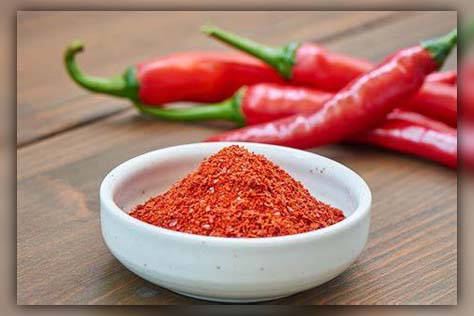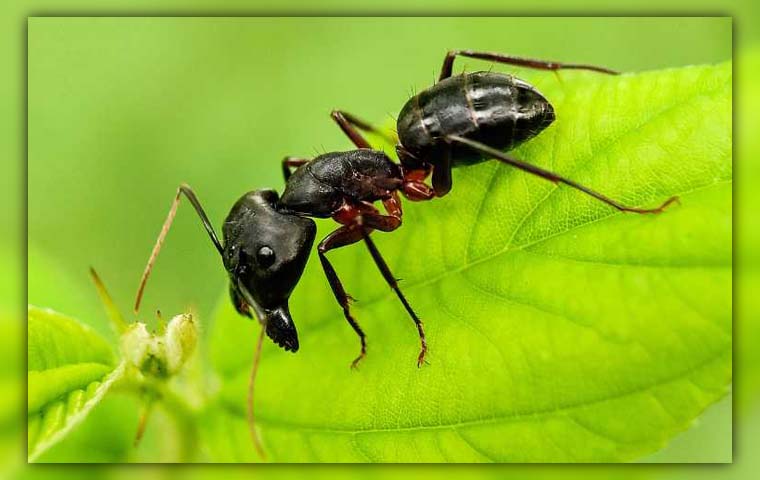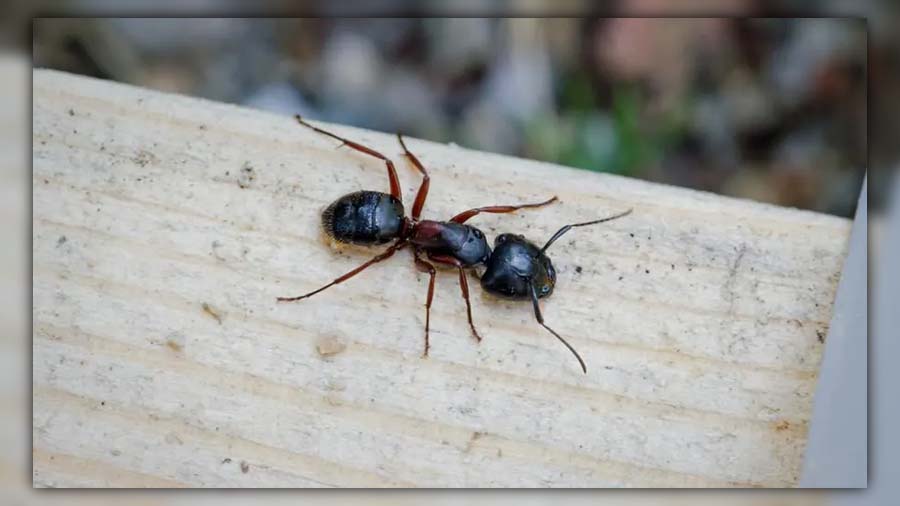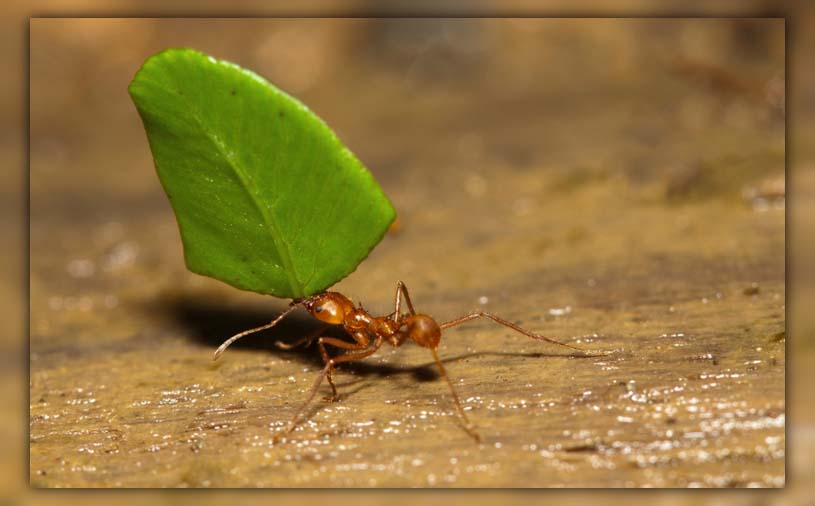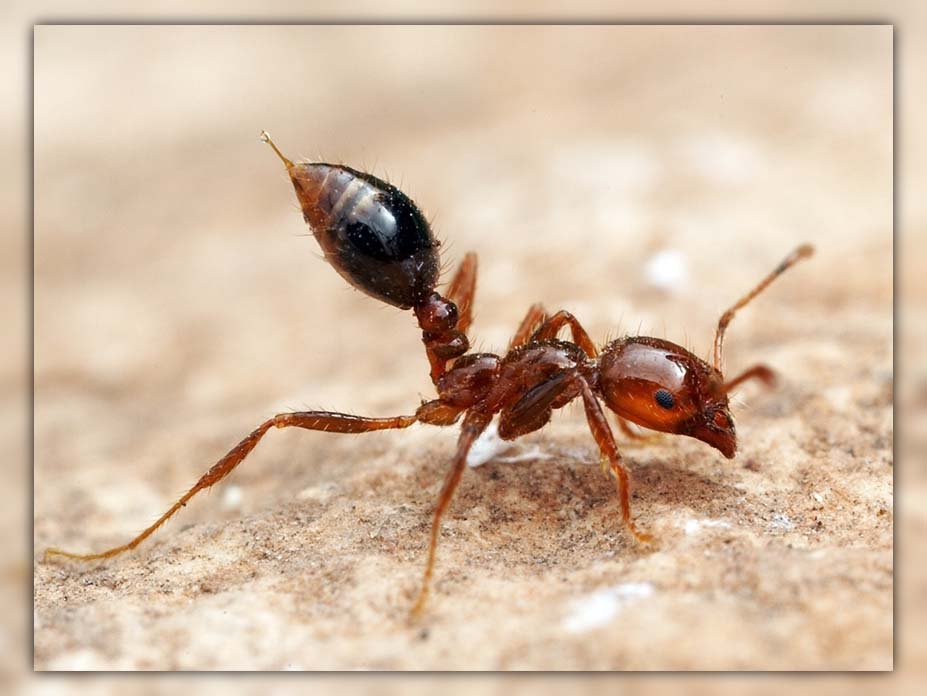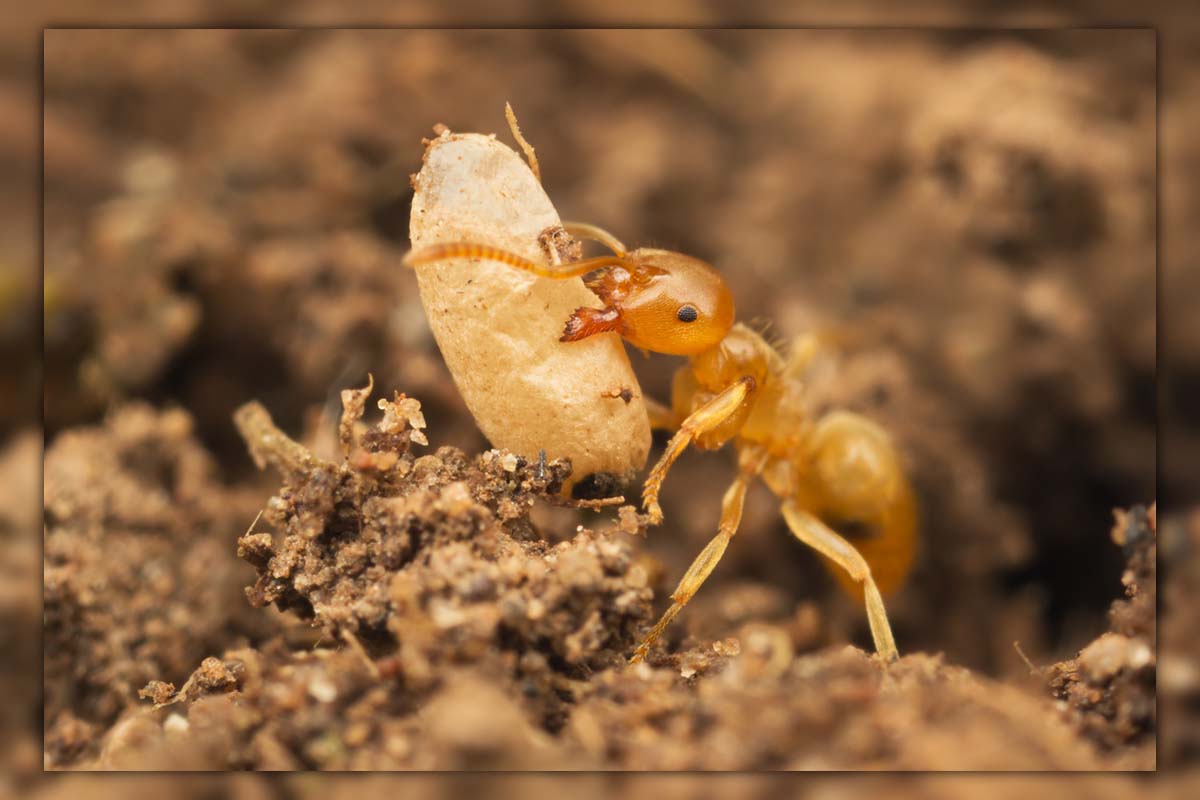Do you have a beautiful garden that you are proud of? Do you want to keep it healthy and pest-free? Do you notice ants in garden and wonder if they are good or bad for your plants?
If you answered yes to any of these questions, then this blog post is for you.
In this article, you will learn the effects of ants in garden, the types of ants that you may encounter, and the best ways to deal with them.
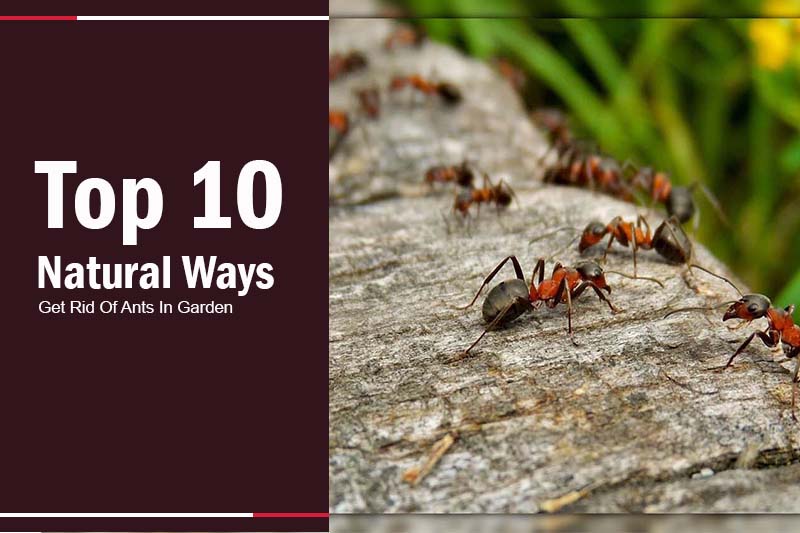
How to kill ants in garden Naturally?
If ants are causing problems in your garden, there are several natural methods you can use to manage them. These techniques are not only effective but also safe for the environment.
Hot Water
Pouring a kettle of boiling water directly onto the ant hill can kill most ants and destroy their colony. However, be cautious not to harm your plants in the process.
Cayenne
Sprinkling cayenne pepper around your plants can deter ants, as they dislike the strong smell and hot taste.
Chalk
Chalk contains calcium carbonate, which ants dislike. Drawing a line around your garden can keep ants at bay.
Dawn
A mixture of Dawn dish soap and water can be an effective way to kill ants on contact and disturb their pheromone trails.
Cinnamon
The strong smell of cinnamon disrupts ants’ communication and acts as a natural deterrent. Sprinkle it around your garden or near the ant hills.
Borax and Sugar
This combination is a tried and tested natural ant killer. The sugar attracts the ants, while the borax kills ants.
Diatomaceous Earth
Sprinkle food-grade Diatomaceous Earth around your garden to kill ants. This natural powder causes the ants to dehydrate and die.
Nematodes
Nematodes are microscopic worms that are natural predators of ants. They can be purchased from garden stores and introduced into your garden to control ant populations.
Orange Peels
Orange peels, when shredded and spread in the garden, can deter ants. The citrus smell disrupts their scent trails and the citrus oil can kill them.
White Vinegar
White vinegar, when mixed with water, can kill ants and also disrupts their trails. However, it may need to be reapplied frequently for best results.
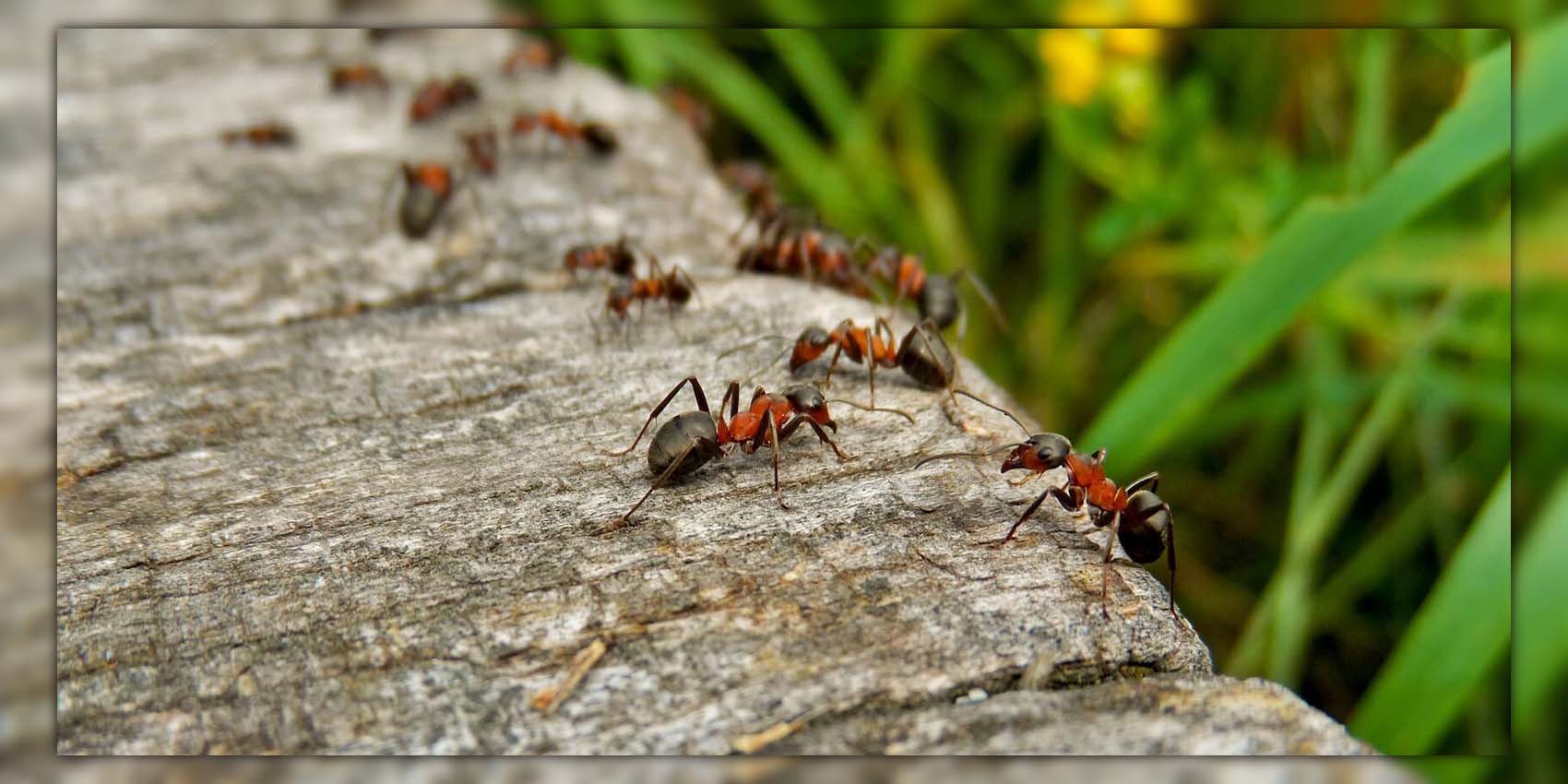
Are Ants Good for Gardens?
Yes, they are! These little fellows play an essential role in maintaining the health and vitality of your garden. However, they’re a bit like the salt in your food – a little can enhance the flavor, but too much can spoil the dish.
4 benefits of having Ants in your garden
While ants can sometimes be a nuisance, they also have several benefits. Let’s delve into the reasons why ants can be good for your garden.
They Accelerate the Decomposition Process
Ants are like nature’s little garbage collectors. They pick up dead insects, leaves, and other organic matter, breaking them down and returning vital nutrients to the soil.
Ants Help Control Pests in the Garden
Ants can be the unpaid security guards of your garden, keeping harmful pests at bay. They feed on larvae of many garden pests, providing a natural form of pest control.
Ants Improve Soil Aeration
Ants are tiny gardeners that help aerate the soil. Their tunnels allow air, water, and nutrients to penetrate more effectively, promoting the growth of your plants.
Ants Assist in Pollination
While they aren’t as effective as bees, ants do contribute to pollination. As they crawl from one flower to another in search of food, they can transfer pollen, helping your plants to reproduce.
3 Drawbacks of Having Black Ants in Your Garden
While we’ve talked about the benefits of having ants in your garden, it’s important to note that there are also drawbacks to these tiny creatures, especially when they appear in large numbers. Let’s look at some of the issues caused by black ants.
They Help Aphids Thrive
Aphids are a gardener’s nightmare, and ants, especially black ants, have a mutually beneficial relationship with them. The ants ‘farm’ aphids for their sweet secretions and protect them from predators, leading to an increase in aphid population which can harm your plants.
Ants Eat Plant Leaves
Some types of ants, like the leaf-cutter ants, carry away small chunks of leaves to their nest. While they don’t consume these leaves, the loss of foliage can harm the plant and affect its growth.
Ants Damage Areas with Abundant Vegetation
Ant colonies can disrupt the root systems of your plants, especially if they choose to establish their nests in areas with abundant vegetation. This can weaken your plants and, in severe cases, even kill them.
5 Types of Ants that May Appear in Your Garden
Understanding the different types of ants that may visit your garden is the first step to effective ant management. Let’s explore the five common varieties you’re likely to encounter.
Black Ants
These are the most commonly seen ants, and they are quite harmless. They won’t harm your plants, but their ant hills can disrupt your garden aesthetic.
Carpenter Ants
Carpenter ants are larger and have a penchant for wood. While they don’t eat the wood like termites, they do burrow into it to build their nests, which can potentially damage wooden structures in your garden.
Leafcutter Ants
True to their name, leafcutter ants chop off pieces of leaves and carry them back to their nest. These leaves aren’t for their dinner table; instead, they serve as the perfect compost to grow their favorite food – a special type of fungus.
Stinging Fire Ants
Fire ants, as their name suggests, can inflict a painful sting. While they are beneficial for pest control, their aggressive nature and painful sting make them unwelcome guests in the garden.
Yellow Meadow Ants
Yellow meadow ants are fascinating creatures. They live underground and have a mutualistic relationship with certain types of aphids, which they “farm” for honeydew. However, their large mounds can be disruptive in a well-maintained garden.
How to Get rid of Ants in Plant Roots?
-
Remove the affected plant from its pot or container carefully.
- Gently shake off excess soil from the roots to dislodge any ants.
- Inspect the roots for ant nests or colonies. If you find a nest, try to remove as many ants as possible manually.
- Rinse the roots under a gentle stream of water to further remove ants and any remaining soil.
- Trim away any damaged or infested roots with clean, sharp scissors or pruning shears. Be careful not to damage healthy roots.
- Repot the plant in fresh, clean soil. Ensure the pot and all gardening equipment used are thoroughly cleaned to avoid reintroducing ants.
- Consider adding a layer of diatomaceous earth to the topsoil. This natural substance can help repel ants and other pests while remaining safe for the plant.
-
Monitor the plant regularly for any signs of ant activity or reinfestation.
FAQs
Let’s address some common questions people have about ants in the garden.
Will Vinegar Kill Ants in the Garden?
Yes, a solution of equal parts white vinegar and water can be used to kill ants on contact and disrupt their scent trails, making it harder for other ants to find their way into your garden.
Is it Wrong to Kill Ants?
This question is subjective and depends on personal beliefs. From an ecological perspective, ants play a vital role in the environment, and their population should be controlled rather than eradicated.
Should You Kill Ants in the Garden?
If ants are causing damage to your plants or disrupting your garden, it may be necessary to control their population. However, a balanced approach that respects the ecological role of ants is recommended.
How to get rid of ants in the garden soil?
To eliminate ants in garden soil:
- Use boiling water on ant nests.
- Sprinkle food-grade diatomaceous earth.
- Spread ground cinnamon.
- Spray vinegar solution or peppermint oil.
- Set out borax and sugar bait.
- Seal entry points and remove attractants.
- Attract natural predators like birds and beneficial insects.
How to kill Ants without killing Plants?
Conclusion
Ants in garden can be beneficial or harmful, depending on the type and number of ants. Some ants can help your plants by pollinating, aerating, and fertilizing them. You can use natural or chemical methods to control ants in your garden.
Pestweek hope you enjoyed this post and learned how to deal with ants in your garden.

Calina Mabel has over 15 years of experience in the field of journalism and communications. Currently, Calina Mabel is the Content Writer for categories such as Cockroach, Ants, Bed Bugs, Mosquito, Rodent, Termite, and Flies on Pestweek.com. She aims to build content for these categories with a focus on providing valuable and accessible information to readers, in order to create the world’s largest knowledge community about Pests.
All content written by Calina Mabel has been reviewed by Emily Carter.


